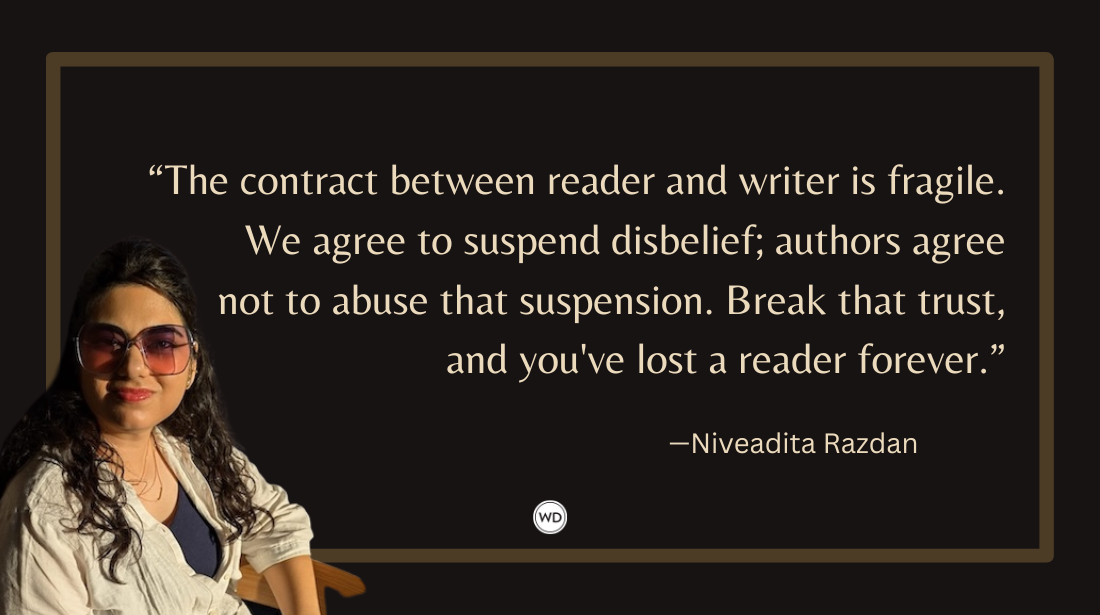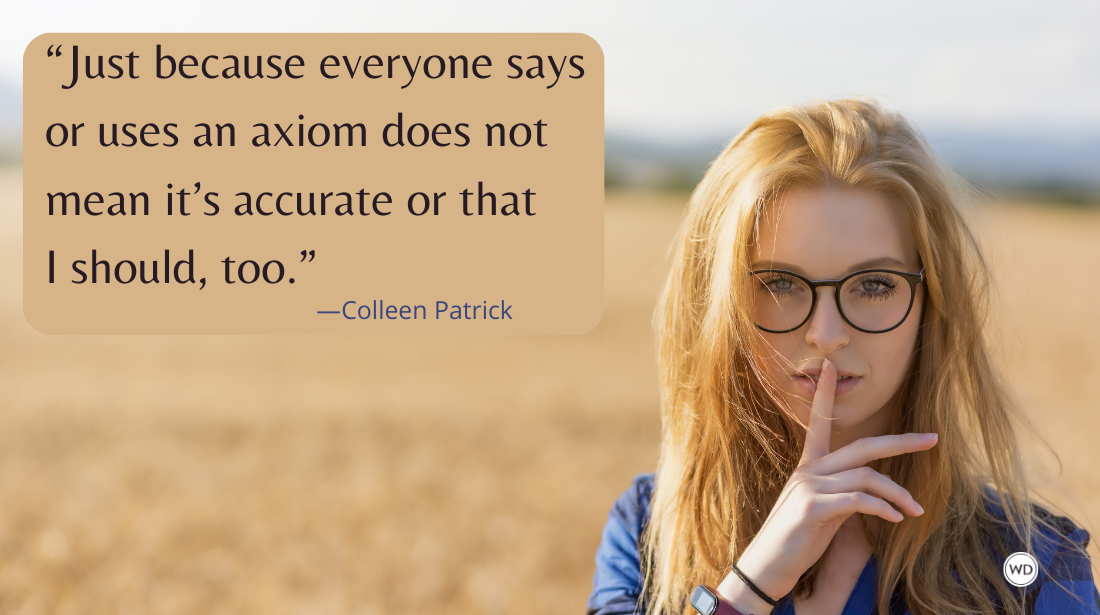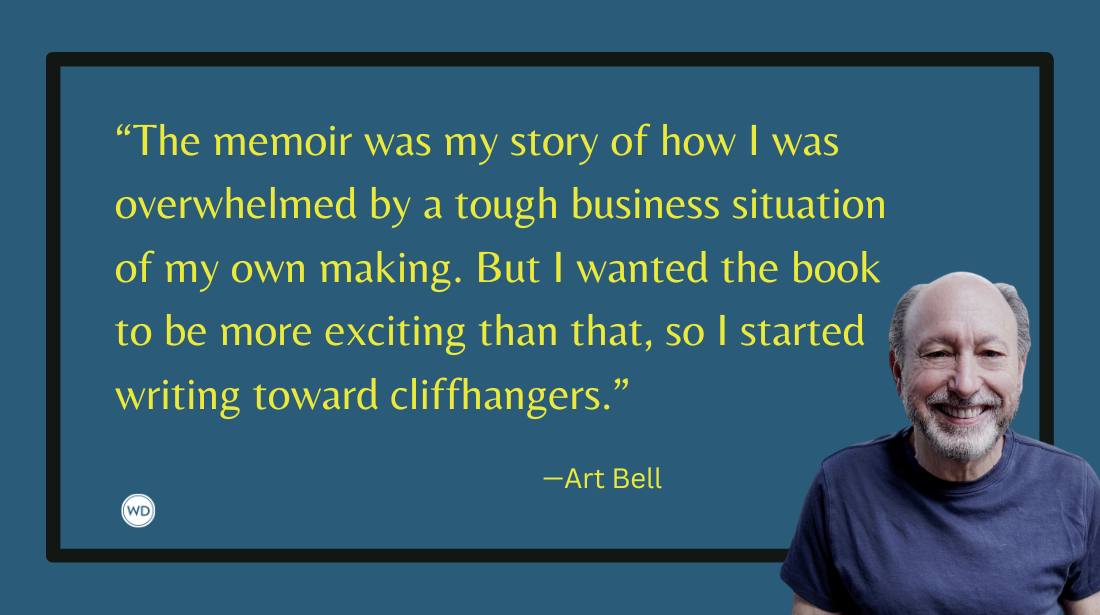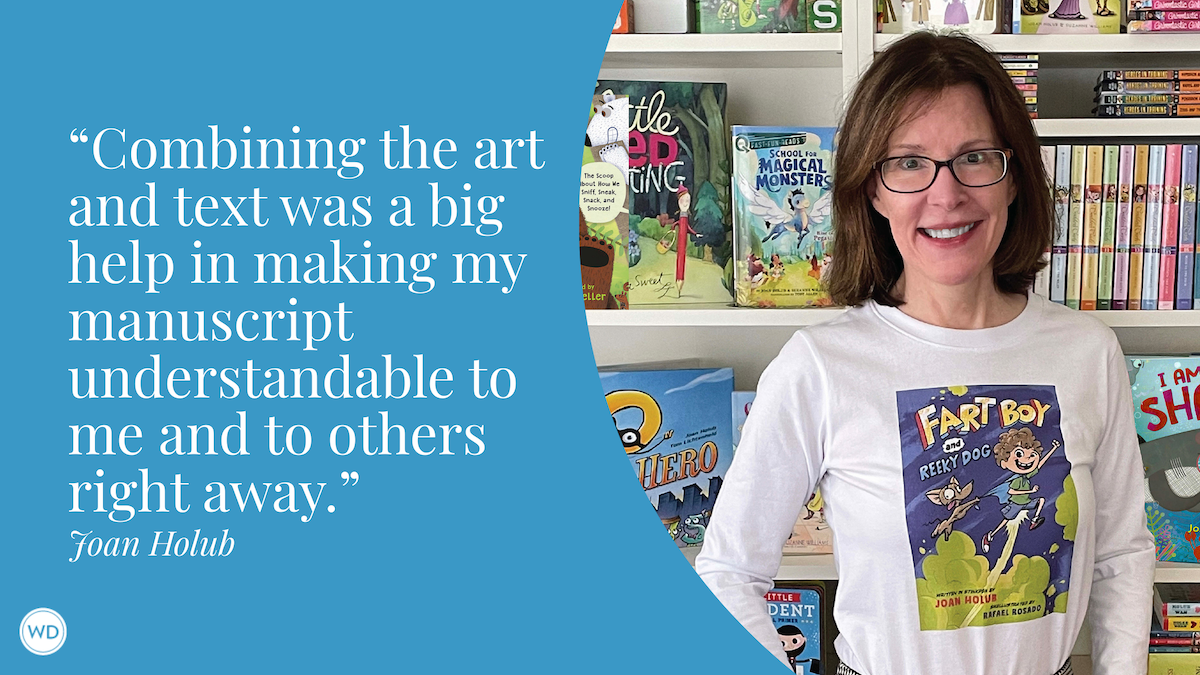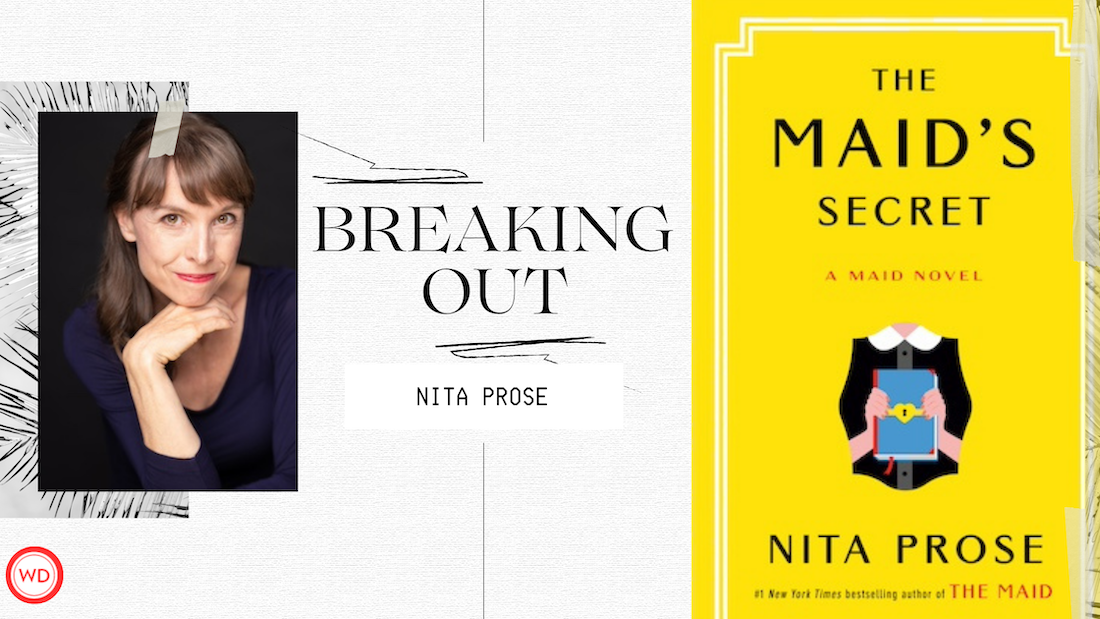The “Secret Sauce” Necessary to Succeed at a 30-Day Writing Challenge
In this article, author and writing coach Nina Amir lays out her top tips to master your mindset and complete a 30-day writing challenge.
Have you ever wondered why one writer succeeds at a 30-day writing challenge and another fails? The answer is simple: mindset.
Mindset is the “secret sauce.” It’s the characteristic that distinguishes a successful writer from an unsuccessful one.
Think of mindset as your overall approach to something, like finishing the first draft to a book in a month. Your mindset is based on attitude, which is formed by your beliefs, feelings, thoughts, or ideas about a task, experience, or situation. Your attitude affects your behavior or how you choose to act. Your behavior determines your results.
And that's why attitude is essential to successfully completing a 30-day writing challenge (or a book project).
Different Mindset, Different Results
If your current behavior isn't helping you achieve your goals as a writer, it’s time to take a hard look at the cause. After all, the same behavior—in this case, your writing habits—will show up during your 30-day writing challenge just as it does all year long.
Habits are your usual behaviors. They are actions you take in a rote manner—like brushing your teeth after getting up in the morning or putting on your seatbelt after closing the car door. Your habits might also include looking at Facebook or email rather than writing or editing and revising your manuscript for the entire time you said you would write. (No, editing and revising are not writing. Research is not writing either.)
As the adage goes, “Your current habits have only helped you achieve your current level of success. To achieve a higher level of success, change your habits.”
To change your writing habits, change your mindset. Your underlying attitudes, as well as your behaviors, will follow suit.
To accomplish this goal, change your beliefs, feelings, thoughts, or ideas about writing and your ability to start and finish an entire book manuscript in 30 days. Then, your results will change as well.
Doing this internal, personal development work leads to different results. Your attitudes shift. That means your mindset shifts as do your behaviors. You become able to write consistently and meet writing goals.
Four Elements of Successful Author Attitude
In The Author Training Manual, I describe a specific type of attitude that helps writers succeed. I call it “Author Attitude.” The four characteristics of this author attitude, which make up the acronym WOOT, apply well to writing a book in a month.
1. Willingness
To become a successful author takes an enormous amount of willingness. To write a book in a month takes even more.
You must be willing to do whatever it takes to succeed. A 30-day book challenge requires sacrifice and commitment. You might have to limit time with family, on social media, or watching television. You might have to change your exercise schedule, hire a babysitter, cook meals in advance, or stop texting with friends to open up time to write consistently for an entire month. Whatever it takes to get the first draft of your manuscript done, be willing to do it.
You must be willing to commit to the 30-day writing event. That takes commitment to the challenge itself as well as to yourself, your goal, and your book project. That said, do not sacrifice your health or relationships over your commitment to succeed at the 30-day writing challenge.
You must be willing to change. This seems obvious … you must be willing to do things differently, so you develop a new mindset and behaviors. To meet writing goals and deadlines, you must be willing to find the internal drive, passion, purpose, or desire to do so.
You must be willing to step outside your comfort zone. Taking on a big goal, like writing a book in a month, can feel uncomfortable. It still has to get done if you want to succeed. So you must be willing to be uncomfortable for a while.
2. Optimism
Studies show that optimists succeed more often than pessimists. If you are an optimist, you don't take rejection, criticism, and mistakes personally. You don't see negative reviews or rejections of your work by editors or agents, for example, as indications that something is inherently wrong with you or your work—something you can’t change. Therefore, you don’t get stuck. Pessimists do take them personally, and they do get stuck.
Optimistic writers approach all types of challenges as opportunities to move closer to the goal of successful authorship. Pessimistic writers see them as one more sign to stop in their tracks.
Optimistic writers tend to be a bit less realistic—in a good way. They don’t believe “no,” “it’s hard,” or “you can’t,” and continue trying to find a way to “yes,” “it’s easy,” and “Done!” Pessimistic writers take these types of comments literally and give up.
If you have an optimistic attitude, you also won’t fall into a funk when you don’t meet one day’s word-count quota, your boss asks you to work extra hours just as you approach the end of the 30-day writing event, or your child gets the stomach flu. You’ll find a way to complete the challenge—even if that way differs from the one you identified at the beginning of the event.
3. Objectivity
Writing requires a thick skin. And the objectivity required comes in many forms and shows up in a variety of situations. In all cases, it requires that you see your work, and sometimes yourself, from a perspective other than your own.
Before taking on a 30-day writing challenge, take a step back, and objectively look at your mindset and behavior. What needs to change to help you finish writing a manuscript in a month? What do you need to do differently to have success attitudes and habits?
If you aren’t sure, ask your friends or colleagues to give you feedback. Their observations could be invaluable—and a big wake-up call. (It may not be a good idea to ask your significant other for constructive criticism, but you can!) Seeing yourself through other people's eyes can provide a tremendous amount of motivation to change.
4. Tenacity
If you don’t have tenacity, you’ll get going when the going gets tough. In the world of writing, it gets tough a lot. Writing a book isn’t easy. Doing it in a month can feel even more difficult.
If you are a tenacious writer, you have:
- Determination: You will do whatever it takes.
- Persistence: You won’t stop until you meet your goals.
- Perseverance: You will always find a way to meet or overcome every challenge.
Supportive Mindset Leads to Success
As you can see, developing a supportive mindset—an Author Attitude—helps you start and finish a book in 30 days. Then, at the end of the month, you can use the term “WOOT” to celebrate your success.
This term is most commonly used to express excitement. So, if you produce the first draft of your book during a 30-day writing event, you should stand up proudly. Then, do the Arsenio Hall rotational hand movement and shout, “WOOT! WOOT!”
If you are looking for a 30-day writing event, check out National Novel Writing Month (NaNoWriMo) or the Write Nonfiction in November Challenge.
Get prepped in advance for the event by developing your new mindset. Then put that secret sauce to use to successfully complete the challenge.
Nina Amir is known as the Inspiration to Creation Coach. As one of 800 elite Certified High Performance Coaches working around the world—the only one working with writers, she helps her clients Achieve More Inspired Results. She helps all types of creators get from the light-bulb moment to the realization of their dreams without letting anything get in the way of that goal.
Nina is also an Author Coach who supports writers on the journey to successful authorship. She has authored three traditionally published books for aspiring authors, How to Blog a Book, The Author Training Manual, and Creative Visualization for Writers, as well as a host of self-published books and ebooks, including the Write Nonfiction NOW! series of guides. She has had 19 books appear on the Amazon Top 100 List and as many as six of her books on the Authorship bestseller list at the same time.
Nina is the founder of the Nonfiction Writers’ University, the Write Nonfiction in November Challenge, and the Author of Change Transformational Programs. She also created a proprietary Author Training curriculum and Author Career Planning program.
For more information, visit NinaAmir.com or BooksByNinaAmir.com.



